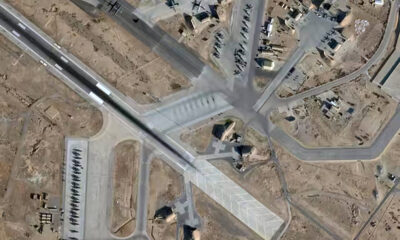Latest News
Russia’s death toll in Ukraine already the same as 10 years in Afghanistan
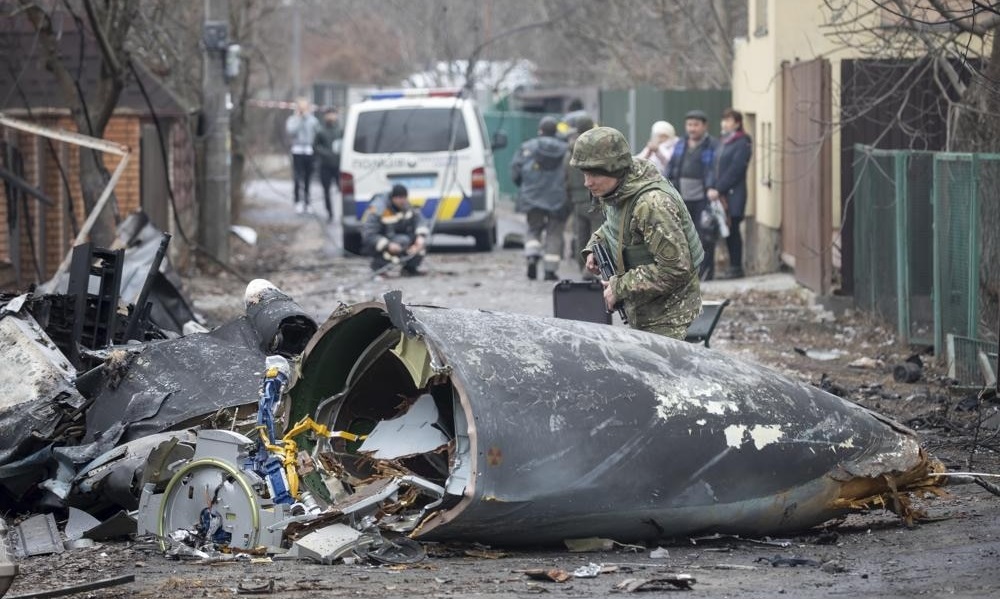
Russian troops in Ukraine have likely suffered as many losses in three months as the Soviet army did during over nine years of fighting in Afghanistan, according to a British government report.
The latest update from Britain’s Defence Intelligence agency claims that “a combination of poor low-level tactics, limited air cover, a lack of flexibility, and a command approach which is prepared to reinforce failure and repeat mistakes” has led to Russia’s high casualty rate among its troops in Ukraine.
According to the latest report from the General Staff of Ukraine’s Armed Forces, the Russian military has sustained 29,200 casualties in Ukraine since the beginning of the war on February 24, Newsweek reported.
This number is probably inflated by Ukrainian authorities, but estimates from Western intelligence report a Russian death toll that’s still much higher than the one the Kremlin is officially recognizing.
In the latest official Russian report, the country’s death toll in Ukraine was just over 1,500 casualties.
Newsweek has reached out to the Russian Ministry of Defense for comment.
On May 15, the British Ministry of Defence estimated that Russia had likely lost a third of its troops sent to conduct the invasion of Ukraine.
In March, the Russian tabloid newspaper Komsomolskaya Pravda briefly published a story claiming Russian troops had suffered 10,000 casualties in Ukraine. The article was later deleted, with the tabloid’s newsroom denying responsibility for it.
It’s likely that Russia has suffered even more casualties than reported by the Soviet army in Afghanistan between December 1979 and February 1989, Newsweek reported.
The Soviet invasion of Afghanistan in 1979 turned into a brutal, long conflict that saw the death of an estimated one million civilians, 90,000 Mujahideen fighters and 18,000 Afghan troops. The Soviet Union lost about 14,500-15,000 men.
Latest News
US Vice President praises Azerbaijan’s role in Afghanistan war
Vance noted that many Americans may not be aware that Azerbaijani forces were among the last to leave Afghanistan.
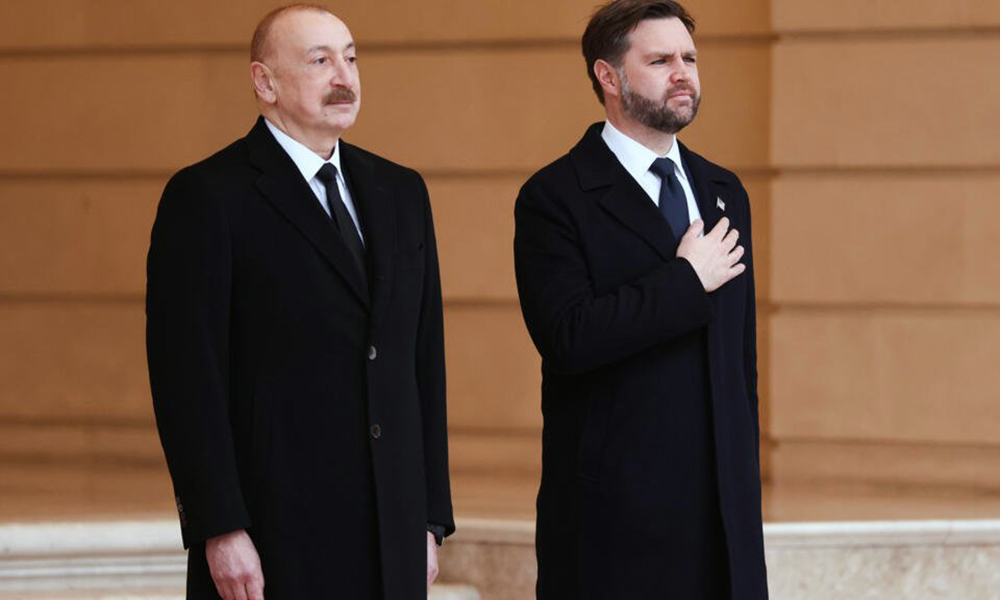
US Vice President J.D. Vance has praised Azerbaijan’s contribution during the war in Afghanistan, describing the partnership between Washington and Baku as highly significant.
Speaking during a joint meeting and press conference with Azerbaijani President Ilham Aliyev, Vance conveyed the respect of the US President to both Aliyev and the people of Azerbaijan. He said the relationship between the two countries has been “an underestimated but very, very important partnership and friendship” for the United States.
Vance noted that many Americans may not be aware that Azerbaijani forces were among the last to leave Afghanistan.
He highlighted Azerbaijan’s supportive role in the global war on terrorism, stating that its troops fought alongside US forces in Afghanistan.
The US Vice President emphasized that Washington seeks not only to express appreciation for Azerbaijan’s past cooperation but also to turn the page and open a new chapter in bilateral relations between the two countries.
Latest News
Ministries of Public Health and Higher Education sign cooperation agreement
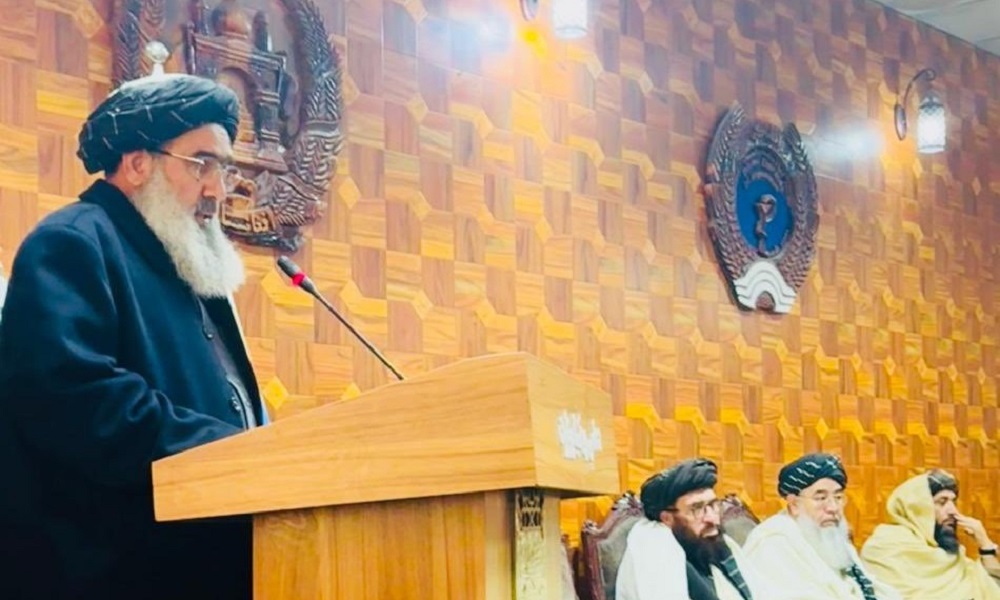
The Ministry of Public Health announced on Tuesday it has signed a cooperation agreement with the Ministry of Higher Education aimed at expanding scientific, research, educational, and technical cooperation.
At the signing ceremony held in Kabul, Noor Jalal Jalali, Minister of Public Health, said that the agreement would lead to significant improvements in the capacity-building of students and doctors, ensure that research is conducted based on evidence, and enable the collection of accurate data.
Meanwhile, Neda Mohammad Nadeem, Minister of Higher Education, described the agreement as beneficial to the public and to both institutions, stressing the need to train individuals at universities who can contribute to social development and make the country self-sufficient in the public health sector.
Latest News
UNAMA holds new round of Working Group meetings on counter-narcotics and private sector
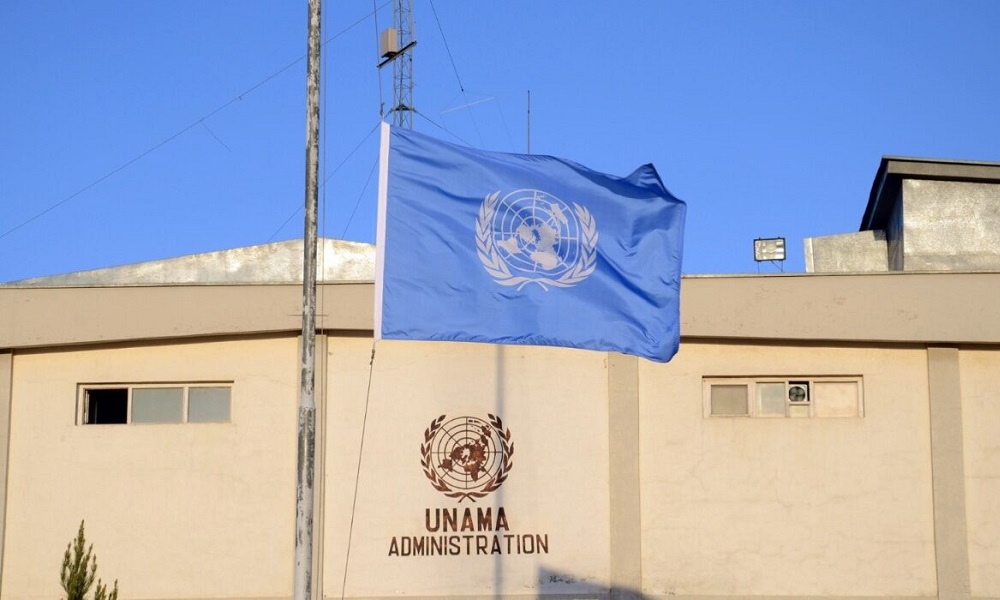
The United Nations Assistance Mission in Afghanistan (UNAMA) has convened a new round of Doha Process Working Group meetings focusing on counter-narcotics and private sector development.
The meetings, held in Kabul on February 3 and 9, brought together representatives of UN member states and international organizations, officials of the Islamic Emirate, and subject-matter experts.
According to UNAMA, discussions in the counter-narcotics working group centered on efforts by Islamic Emirate authorities and the international community to support alternative livelihoods for Afghans previously dependent on poppy cultivation and the illicit opium trade. Participants also reviewed drug-use prevention and treatment initiatives, as well as law-enforcement measures to curb narcotics production and trafficking.
The private sector working group focused on job creation and entrepreneurship, with particular attention to women’s participation in the private sector, market integration, access to finance, and the development of private banking and financial infrastructure.
UNAMA said both working groups identified priority areas for enhanced engagement and explored more effective and sustainable approaches to supporting Afghan men and women. Participants also examined the linkages between the two areas, noting that private sector development is a key source of livelihoods, while counter-narcotics efforts contribute to Afghanistan’s economic and social stability.
The working groups were established following the third Meeting of Special Envoys held in Doha, Qatar, in June and July 2024, in line with recommendations of the Independent Assessment endorsed by the UN Security Council. The process aims to promote more coherent, coordinated, and structured engagement with Afghanistan’s de facto authorities for the benefit of the Afghan people.
UNAMA added that stakeholders engage in the working groups on an ongoing basis, with full-format meetings convened periodically. Since their establishment, the groups have improved information-sharing, helped mobilize additional resources, and facilitated expert exchanges to strengthen support for the Afghan people.
-

 Latest News4 days ago
Latest News4 days agoAfghanistan to grant one- to ten-year residency to foreign investors
-

 Sport4 days ago
Sport4 days agoIran clinch AFC Futsal Asian Cup 2026 in penalty shootout thriller
-

 Latest News4 days ago
Latest News4 days agoAfghanistan says Pakistan is shifting blame for its own security failures
-

 International Sports3 days ago
International Sports3 days agoWinter Olympics gain momentum as medal table takes shape
-

 Latest News4 days ago
Latest News4 days agoTraffic police receive new cars
-

 Regional5 days ago
Regional5 days agoIran’s FM calls Oman-mediated talks with US ‘good start’
-

 Sport2 days ago
Sport2 days agoChampions League Elite action continues as qualification race tightens
-
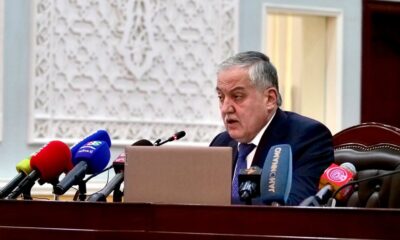
 Latest News3 days ago
Latest News3 days agoTajik foreign minister urges international community to help Afghanistan address its challenges








